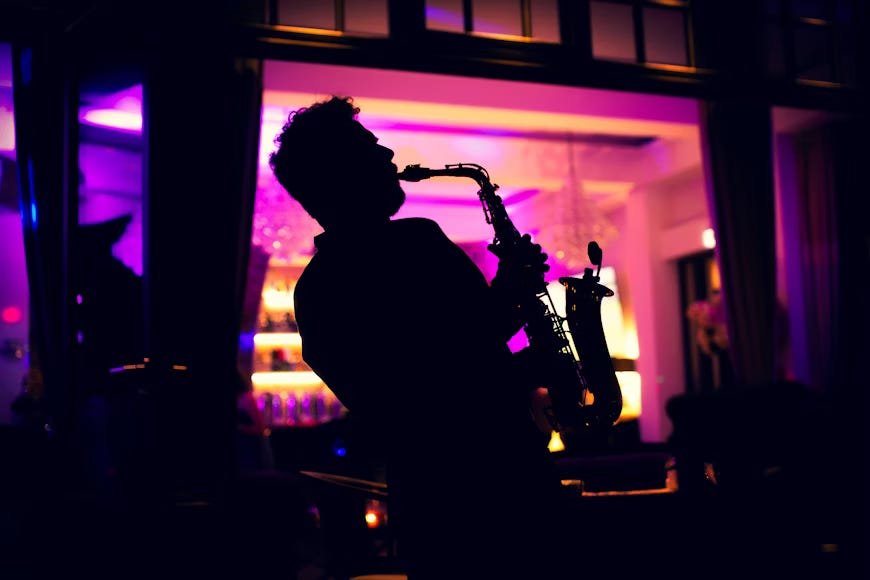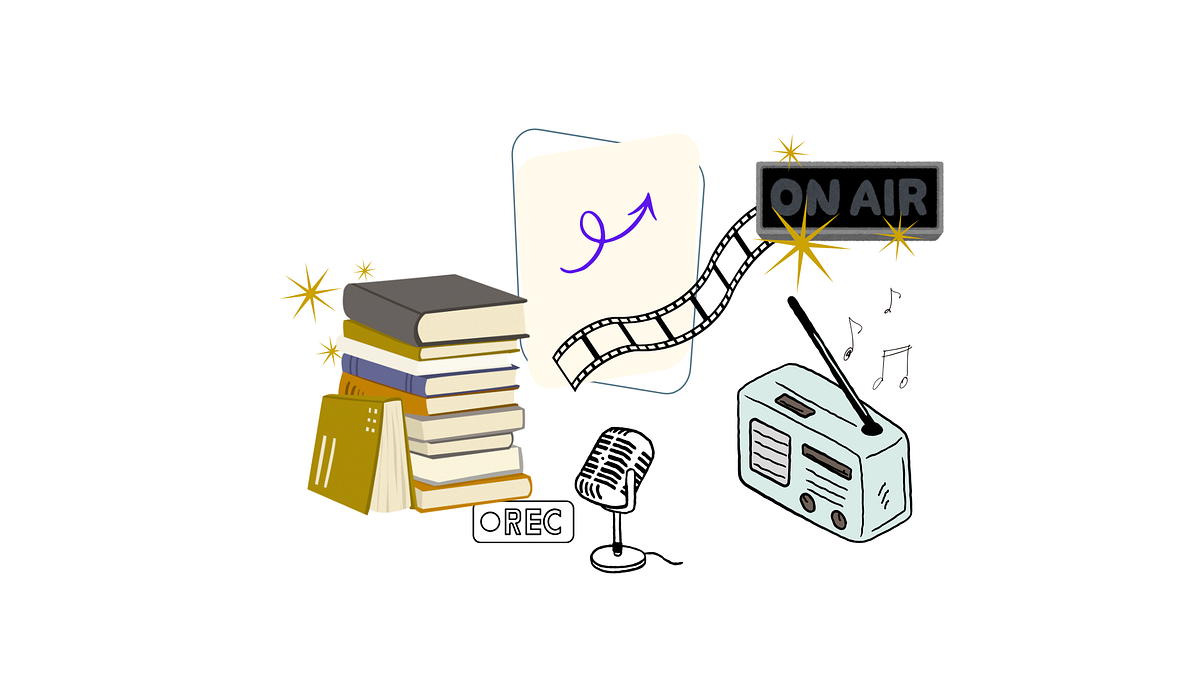My First Anxiety Attack & How Jazz Saved Me

A personal account of crippling fear, resilience, and the healing power of jazz to remedy panic attacks.
Introduction
Growing up, words like ‘anxiety’ and ‘depression’ were weightless and insignificant. Despair was a bacterial disease that infected all Black people living within the confines of inner-city poverty. Complaining about inner demons would only come across as a weakness.
For a time, I downplayed the significance of improving my mental well-being.
Then I had my first panic attack at twenty years old. This made me realize my everyday struggles included an internal battle I had yet to confront.
The stigma surrounding mental health within the Black community has obstructed many from seeking much-needed help. The belief that mental illness equates to frailty can only be vanquished through proper education, coping advice, and a supportive network.
This personal account of my first panic attack is meant to help others within my community…
- Put a face to the complexities of their mental health challenges.
- Find solace in knowing others are fighting similar battles.
- Explore options for therapy, healthy coping mechanisms, and personal wellness.
As difficult as the experience was, I’m thankful it happened. It introduced me to the soothing comfort of smooth jazz and helped me realize my potential for self-improvement.
My First Panic Attack
She asked me if I wanted to be her boyfriend. It was like asking a drowning man if he wanted water.
Years of quiet self-loathing and narcissism had convinced me there wasn’t a girl alive who’d be interested in me. When Desiree floated the idea of a relationship, I nearly jumped out of my skin.
She was my first girlfriend, and I wanted to be perfect. I did all that I believed would make her happy.
We dated for nearly a month before the honeymoon phase slowly started to rot. The passion had run dry. Everything I said was irritating and uninteresting.
One night — out of the blue — I was informed by a mutual friend that she was kissing someone else at a party.
That was when I felt the warmth in my chest.
The sensation was gentle at first. Little discomfort. But the more I thought about her, the more it felt like a giant fist was squeezing my heart. There wasn’t enough air in my lungs to breathe normally. A dark cloud trapped me in a bottomless void.
I could barely keep my eyes closed long enough to sleep. The happy memories and negative self-talk demanded my undivided attention. They swirled and repeated in my head like a catchy song.
I tried walking around and staying active to distract myself. But the thoughts continued to consume me. Devouring me from the inside out. I was desperate and afraid. All I could think about was doing whatever it took to stop the torment.
I never felt so close to dying. I believed my heart would stop at any moment.
Jazz Music: My Path to Relief
I remember it like it was yesterday.
In a Sentimental Mood by Duke Ellington was playing on a car radio outside my bedroom window. The driver was double-parked with his hazards on, presumably waiting for someone in the apartment.
The soothing sound of Coltrane’s sax drowned out the negative thoughts, as the orchestra kept me floating in mid-air. Every note pulled me further from the edge. The music spoke to me. It validated my emotions as it held me close.
I was still in pain, but I was no longer suffocated by it. The music kept my feet glued to the ground and my mind in the present. The painful thoughts of Desiree subsided as Coltrane took control.
After that came Miles Davis. Charlie Parker. Thelonious Monk. Sonny Stitt. Black musicians who remain among the most influential figures in the history of jazz. Each composition brought me further clarity.
Before I knew it, I was tucked under my bed sheets with my face buried in my pillow. Blue in Green by Miles Davis, John Coltrane, & Bill Evans came on next. My heartbeat slowed, fresh air filled my lungs, and I drifted off to sleep.
Overcoming Anxiety and Finding Purpose
That panic attack would later become one of many. When faced with enough emotional pressure, I felt the same warmness in my chest and a thickness in my throat.
Fortunately, jazz music helped me become more self-aware of my anxiety. It put me at ease and reminded me not to spend too much time in my head.
This discovery led me to use jazz as an essential tool in my mental health journey. At night, I fall asleep to my favorite jazz playlist. During my commute to work, I kept the station on Smooth Jazz CD 101.9 to lift my spirits.
Bad breakups. Heated confrontations. Financial burdens — they all led to dark episodes. When I hear my music playing, I can manage my attacks and overcome anxiety. But why Jazz?
As time progressed, I realized my love for jazz dates back to my childhood. My father liked to play Kenny G, Sade, and Al Jarreau every night to serenade the house back then.
Those were simpler times when I felt the safest and secure in my life. When I listen to jazz today, I travel back in time and bring that nostalgic comfort to the present.
The combined efforts of therapy and jazz have brought me peace I never thought existed. It influenced my advocacy for developing safe coping mechanisms and using them to balance my thoughts.
Many of us have triggers. With a coping method, an open mind, and a desire to heal, you can keep those triggers from defining you. With so few outlets to vent within our community, it is essential to preserve whatever keeps you at peace.
Conclusion
When I realized Desiree was cheating on me, my mind went into a panic. Everything was moving faster than I could process it. There was a thick matter of darkness shrouding me, leaving only room for me and my worst thoughts.
I’d been sad before — as we all have — but I knew what I was feeling was different. I had no desire to exist. Everything that usually mattered to me no longer did, because it didn’t involve Desiree.
The longer I spent in my emotional turmoil, the harder it was to rationalize my existence. I was terrified and completely lost. It wasn’t until I heard Duke Ellington playing outside that I realized —
Everything was going to be okay. Those ugly thoughts I was having weren’t real. Desiree was not worth harming myself for, and life will go on.
Since then, I’ve accepted jazz as an important tool in anxiety management. Its smooth, calming sound is like nourishment for the soul. My top five favorites include:
On average, I take time for myself and listen to two of the five compositions. I view it as a personal form of meditation and empowerment.
My story isn’t exclusive. Many Black men and women across the nation have similar experiences but refuse to address them or seek medical help.
According to the American Psychological Association, only 26.4% of Black and Hispanic men ages 18 to 44 who experienced daily feelings of anxiety or depression used mental health services.
By sharing one of the most vulnerable and horrific experiences in my life, I hope it will inspire others to heal. I hope they can discover healthy coping methods when distressed and accept support when offered.
Valuing your mental health is crucial for survival. Our least visible scars mark the worst of the damage. By talking about our internal struggles and how we deal with them, we put ourselves on the path of wellness.
Do you have a helpful outlet that helps you keep your composure during the hard times? Comment and share your coping strategy below. Together, we can erase the stigma surrounding Black mental health and be a part of the conversation.


